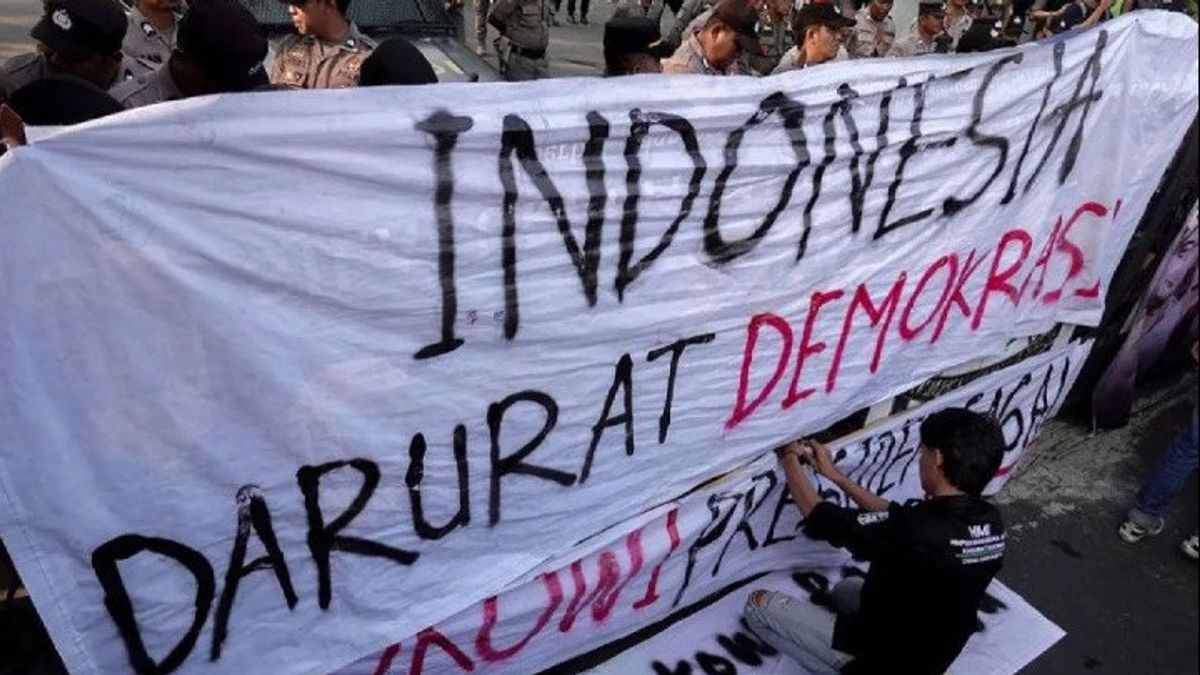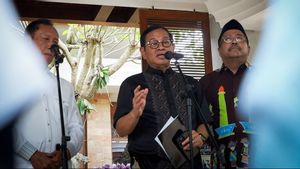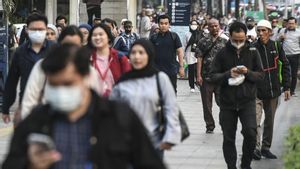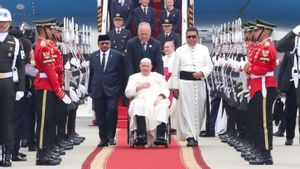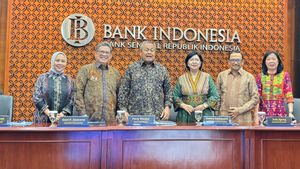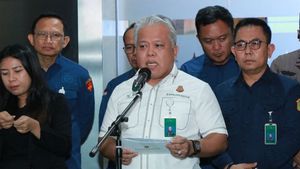JAKARTA Indonesian democracy is said to be not doing well because of the shadow of the threat of dynastic politics, oligarchy, and the erosion of democracy. But on the other hand, people's resilience is a hope that Indonesia will not return to the New Order authoritarian. Resilience is the ability to adapt in difficult situations.
The 10th and 12th Vice Presidents of the Republic of Indonesia Jusuf Kalla (JK) had mentioned the 2024 election as the worst election in Indonesian history after the 1955 election. Not without reason JK made this statement.
He suspects that there was a systematic fraud in the 2024 election, which was won by the Prabowo Subianto-Gibran Rakabuming Raka pair, which involved the authorities.
"For me, I have said this is the worst election in Indonesian history since 1955, meaning that it is election democracy which is then regulated by minorities, meaning that people who are capable, people of government, by people who have money," said JK when giving a speech at the discussion on "Consolidation for Democracy Post-Ection 2024: Opposition or Coalition" held at the Faculty of Political Social Sciences, University of Indonesia (UI), Depok, Thursday, March 7, 2024.
The democratization process in Indonesia continues to decline. This is supported by a number of previous studies that show that one of the significant characteristics that mark the erosion of democracy is when elected leaders engineering the previously agreed platform and rules of democratic play, including engineering electoral competition through mechanisms and laws.
Instead of encouraging institutional reforms, democratically elected leaders often use their popularity to push for policies that as time goes on, destroy the checks and balances systems, hinder free and fair elections, and weaken civil liberties.
They also often abuse and weaken democratic norms and institutions, so that the democratic system becomes ineffective, only become formal tools and procedures for power. A few months before voting day, the public was shocked by the decision of the Constitutional Court (MK) regarding the lawsuit for the age limit for nominating presidential and vice presidential candidates in the 2024 presidential election.
The Constitutional Court granted a judicial review or judicial review of Article 169 letter q of Law Number 7 of 2017. Case Number 90/PUU-XXI/2023 which was requested by Almas Tsaqibirru ReA asked the Constitutional Court to change the nomination requirements for Presidential Candidates and Vice Presidential Candidates to a minimum age of 40 years or experience as regional heads, both at the provincial and district/city levels.
Thus, the Constitutional Court ensures that someone under 40 years of age can still be nominated as a presidential and vice presidential candidate, provided that he has experience serving as an election result official or pilkada.
Shortly after the verdict was read, all eyes were on the name Gibran Rakabuming Raka. Observers and almost all people agreed that the Constitutional Court's decision had a political nuance and vulgarly favored the interests of President Jokowi's family.
Once Gibran was finally officially promoted by the Forward Indonesia Coalition (KIM) to accompany Prabowo Subianto, the next events became a concern. President Jokowi and the ministers who are members of the campaign team are considered to be increasingly using social assistance programs aka social assistance as a tool for the vote-boosting campaign.
It did not stop there, ahead of the Simultaneous Pilkada in November 2024, manipulative behavior also repeatedly emerged from electoral actors, who have the potential to narrow down the arena of fair and equal contestation, as well as hinder the political participation of the community. The efforts of the Legislative Body (Baleg) of the DPR plan to annull the Constitutional Court's decision regarding parliamentary thresholds and the minimum requirements for regional head candidates are the latest evidence indicating serious and systematic manipulation efforts carried out by political elites.
Even though the Constitutional Court's decision this time is considered as a breath of fresh air for Indonesian democracy. The DPR's discourse to ratify the Pilkada Bill immediately received rejection from almost all levels of society. Demonstrations occurred in various regions, including in the DPR/MPR RI Building area.
Executive Director of the Center for Political Studies at the University of Indonesia (PUSKAPOL UI) Hurriyah said that the current condition in Indonesia is not a typical situation. He said Indonesia's democratic situation today is worrying in various aspects.
"If we imagine the long journey of political and legal reforms since 1998, in 2024 it seems as if it undermines all achievements," Hurriyah said at a public discussion entitled "Threats to Democracy in Indonesia: Learning from Experience in Southeast Asian Countries".
"Because what happened was the achievement of current legal reforms turned out to be legal autocraticism. How the government uses mechanisms, procedures, legal ways to manipulate democracy," he added.
Furthermore, Hurriyah said that Indonesia actually has a good electoral system, with direct elections, has a multiparty system, there is a checkand balance mechanism, and it should be. But even though electoral democracy seems aggregate, when it comes to its substance, it turns out that democracy is not used as the only game in town or the only thing that matters.
Speaking of threats to democracy, similar situations also occur in several countries around Indonesia, especially Southeast Asia. Strengthening the issue of populism and politicizing identity is a serious topic of conversation for political scientists in Southeast Asia who see this as one of the threats to democracy in this region.
There are at least three countries that have similarities, namely, Thailand, the Philippines, and Indonesia. The three countries experienced a decline in democracy in 2014 with the overthrow of the Thaksin Shinawarta government in Thailand, the rise of Rodrigo Duterte, who was popular with authoritarianism in the Philippines in 2016, and the strengthening of political dynasties during the Jokowi administration in Indonesia.
Apart from Southeast Asian countries, Hurriyah, citing the Economist Intelligence Unit survey, said that globally only eight percent of countries are categorized as full democracy. Even big countries like the United States and some in Europe are also experiencing difficulties in maintaining democracy.
"So this is indeed a global phenomenon. The threat of democracy from autocratic leaders does not only occur in new democracies such as Indonesia, but also in a country where democracy is already established," he said.
SEE ALSO:
Hurriyah said that the decline in democracy had actually been seen since 2019, when there were efforts to narrow the democratic space at the elite level. Even so, he is quite relieved because in the midst of a declining democratic situation, people are still able to fight even though this struggle is quite difficult.
Demonstrations condemn the DPR's plan to ratify the Pilkada Bill some time ago as evidence that resistance from various elements of society is still being carried out.
"This resilience is what allows us to ensure that Indonesia, although experiencing a decline, will not return to the New Order authoritarian period," he said.
The English, Chinese, Japanese, Arabic, and French versions are automatically generated by the AI. So there may still be inaccuracies in translating, please always see Indonesian as our main language. (system supported by DigitalSiber.id)
